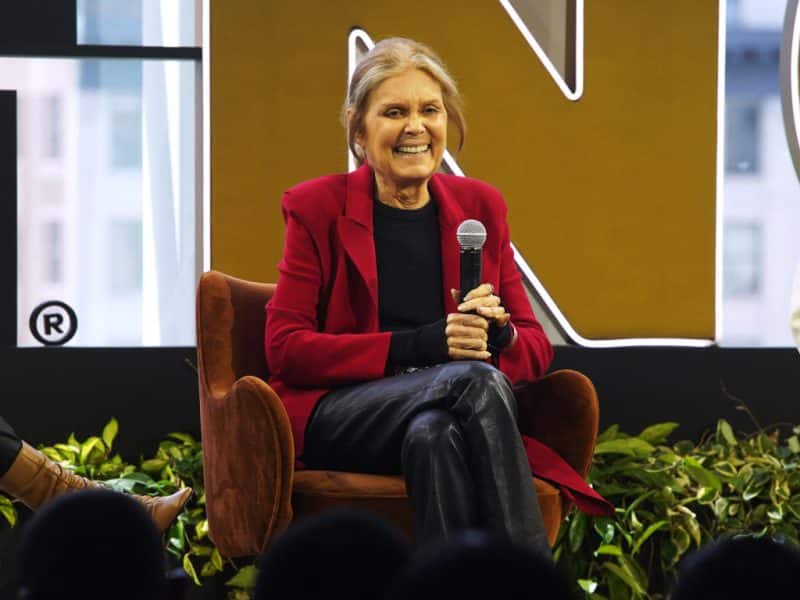
(WOMENSENEWS)–The catchphrases “involved fathering” and “fathers’ rights” have been at the forefront of an important debate raging across the country as more and more moms and dads try to walk without stumbling through the still-somewhat-foreign landscape of 21st century American family life.
Simply put, involved fathering can be positive or negative, a force for great good in family relations and child rearing, or a force of hostility and estrangement in relations within a family, with partners and with children.
On one side of the debate are the growing numbers of men–whether members of intact families or single fathers–who have heeded the message of their own hearts or their children’s mothers, or both, to see their role as fathers as a central component of their identity. These men, often swimming upstream against assigned expectations for fathers, are involved with their children and families in ways seldom seen in previous generations.
They don’t go after the big promotion at work. They arrange their schedules so they can take the kids to the dentist. They rarely miss a soccer game or school play. At home, they cook and clean and recognize that they don’t have to make the big decisions unilaterally in order to feel good about themselves. They are getting support from dads’ groups when their kids are small and from parenting classes that involve fathers early and often.
And they are also getting support from their partners or wives, current or ex, who recognize the simple fact that it is good for kids to have their dads actively involved in their lives, and it is good for dads to be actively involved.
Credit Mothers With Opening the Parenting Circle to Admit Fathers
Mothers of all persuasions deserve a lot of credit for opening up the parenting circle wide enough to let fathers in. After all, raising children has long been seen as a woman’s domain, not to be encroached upon by the masculine hand that touches and directs so much of society.
Even if the workload was gravely unbalanced, at least women knew that the realm of babies and children was theirs alone. Now, with the phenomenon of involved fathering, when a high-conflict separation or divorce looms large, households’ personal problems can easily grow into serious social threats to the stability of families and the safety of women and children.
On the other side of the contemporary fathering story, there are many separated or divorced fathers who are unsure of what family life in the era of involved fathering is “supposed” to be like. For them, there is often a lot of confusion, frustration and anger.
Sometimes those feelings of anxiety or hostility are triggered by a family court judge awarding an ex-partner more time to be with the children. Sometimes those feelings are triggered because a father is still angry at his ex-wife for ending the relationship or because he feels unsure about how to take care of the kids by himself.
Many such fathers see their children’s mothers as actively trying to deny them access to their children, and more than a few get involved in what are often called “fathers’ rights” groups. It’s not uncommon to see handfuls of men with signs advocating the rights of dads picketing in front of family courts in many states in most sections of the country.
Some may very well be getting a raw deal. If so, it is essential that divorce lawyers, psychotherapists, family service court officers, mediators, guardians ad litem and judges educate themselves about those circumstances and take steps to intervene when a man has been erroneously targeted as part of a strategy in a contentious custody complaint.
Many Fathers in Contested Custody Cases Have History of Abuse
However, in a dangerously high number of cases, many of these fathers have a documented history of abuse. Some have been arrested for domestic assault and battery; some have had restraining orders taken out against them–not as a strategy, but because they have threatened to hurt or have hurt their former partners. Sometimes their children, too, have been hurt or are at risk.
Thankfully, the old-school response to domestic violence–violence behind a family’s closed doors is nobody’s business–has evolved into sophisticated trainings for police, social service agencies, physicians, school personnel and emergency room staff, among others. Society has said loudly and clearly that it won’t tolerate abuse.
Nonviolent fathers deserve support as they look for a fair shake in custody cases in which they have legitimate claims. But others have forfeited any such claim for support if they intimidate their children’s mothers, harass the court or affiliate themselves with groups more interested in fueling conflict than in maintaining the well-being of their children.
They’d be well advised to stop wasting precious time tearing down their children’s mothers and concentrate instead on building up their relationships with their children.
Involved, nonabusive fathers may have their hands full raising their children, but they have much to teach the fathers who’ve crossed the line. Maybe some of them who coach a team or juggle carpool responsibilities will find time to show up when the fathers’ rights dads are picketing and will take a few minutes to talk with them. Maybe they’ll band together, too, to say there is another way.
Rob Okun is associate director of the Men’s Resource Center of Western Massachusetts, a counselor in private practice in Amherst, and editor of Voice Male magazine.
For more information:
Men’s Resource Center of Western Massachusetts:
http://www.mensresourcecenter.org/


